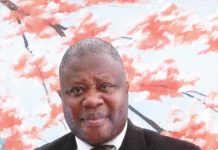On Saturday, December 7, 2024, Ghana Decides. This election will field three economies.
They are Digital Economy of the NPP; Enterprise Economy of Alan Kyerematen and 24 Hour Economy by the NDC. What does each one hold for Ghana?
Digital Economy: This refers to the economic activities that emerge from connecting individuals, businesses, devices, data and operations through digital technology. It encompasses the online connections and transactions that take place across multiple sectors and technologies, such as the internet, mobile technology, big data and information and communications technology.
The digital economy differs from a traditional economy because of its reliance on digital technology, online transactions and its transformative effect on traditional industries.
Digital economy is the economic activity that results from billions of everyday online connections among people, businesses, devices, data, and processes. The backbone of the digital economy is hyperconnectivity which means growing interconnectedness of people, organisations, and machines that results from the Internet, mobile technology and the internet of things (IoT).
Digital economy has given rise to many new trends and start-up ideas. Almost all of the biggest companies in the world (Google, Apple, Microsoft, Amazon) are from the digital world. Some of important merits of the digital economy include, 1). Promotion of the use of the internet; 2).
Rise in e-Commerce; 3). Promoting digital goods and services: days when one must buy DVDs and CDs are gone and these days one does not need to go to the bank, insurance company, etc, since the services are available digitally, and 4). Transparency in transactions and payments online, since cash transactions are coming rare. This reduces corruption in the market.
The demerits include, 1). Lack of employment; 2). Lack of experts especially in the rural communities and 3). Need for Heavy Investment: Digital economy requires a strong infrastructure, high functioning Internet, strong mobile networks and telecommunication. All of this is time consuming and investment heavy process. In a developing country like ours, development of the infrastructure and network is a very slow, tedious and costly process.
Only last week, on behalf of government, the Minister for Communications and Digitalisation, Mrs Ursula Owusu-Ekuful, launched a Digital Economy Policy to transform the nation into a regional digital hub. The policy which is a vital roadmap to achieving a competitive and inclusive digital economy, aims to harness digital technologies to drive inclusive economic growth, enhance public service delivery and position Ghana as a leader in digital innovation.
The minister stated that, “Having access to digital technologies and services is no longer a luxury for the privileged few but a Human Right for All, irrespective of social status or geographical location.”
With digitalisation, one need not go out to pay utility bills, but can do so online. One need not go out to purchase passport forms before filling it, but can do all online. With digitalisation, online transactions have made living much easier.
Dr. Bawumia, flagbearer of the NPP who also leads Ghana’s digitalisation agenda, promises to take Ghana further into the digitalisation world, to rub shoulders with leading nations and turn our economy around.
The ways the nation is benefiting fromdigitisation include, making payments online. Now it will be impossible for someone to give out to fake receipt and pocket the money. So, funds meant for the state go directly to the state.
Enterprise Economy: Alan Kwadwo Kyerematen, one of Africa’s pillars of trade and development and initiator of Africa Continental Free Trade Area, AfCFTA, is running independently for the seat of president in this December’s election. He has pledged to transform Ghana through enterprise economy, if he is elected president. Enterprise economy is based on enterprises which are businesses that offer products and services.
Free enterprise economy,is an economy where the market determines prices, products and services rather than the government.
Businesses and services are free from government control in a free enterprise environment. Free enterprise is characterized by different factors, including private property rights. Alternatively, free enterprise could refer to an ideological or legal system whereby commercial activities are primarily regulated through private measures.
Examples of free enterprise economy are the product market which most consumers are familiar with and it offers goods and services. The second is financial economy which refers to the place where individuals trade assets like stocks, bonds and currencies among others.
Among the advantages of free market economy are, 1). Economic growth: New products and services created by entrepreneurs can generate new wealth and boost national income. 2). Investment in human capital: Higher earnings from entrepreneurship can lead to more government spending and tax revenue. This can result in investment in human capital and struggling sectors.
3). Innovation: Entrepreneurship can lead to the creation of new products and services, which can drive innovation. 4). Job creation: Entrepreneurship can create new jobs. 5). Skill development: Entrepreneurship can help people develop a variety of useful skills. 6). Competition: This can make the stakeholders thrive to improve quality of goods and services to get good hold of the market.
Among its disadvantages are, 1) Social welfare neglected: In a free market system, businesses are mainly focused on making profits. This can sometimes lead to neglect of social welfare issues. For example, companies might prioritize profit over consumer safety and sell dangerous products if there is a demand for them.
2) Insufficient production of social goods: The free-market system may not produce all the goods and services that are beneficial to society as a whole. Some goods, like public parks, provide benefits to everyone but may not generate enough profit for private businesses to produce them. 3) Negative externalities: Uncontrolled industrial growth in a free-market system can cause negative effects on the environment, such as pollution.
The cost of pollution is often borne by the local community, impacting their well-being. 4) Wastage of resources: In a competitive free market, businesses spend money on advertising to attract customers. If these advertisements are ineffective, it leads to wasted resources and higher costs.
5) Monopoly: Free competition between businesses can sometimes result in a monopoly, where one company dominates the market. This can lead to higher prices, limited choices, and lower-quality goods due to the absence of competition. 6) Price instability: In a free market system, prices of goods are determined by supply and demand without government control. This can result in price instability, with prices going up and down frequently.
In all these, free enterprise economy will be very ideal for a growing economy like Ghana. With very sound government regulations that can check the disadvantages without harming productivity and services, the free enterprise economy is very ideal. Having said that, if the Ghanaian businessman is fully protected the economy will grow and accompanied with exporting of goods and services, it will reflect positively on our economy.
24-Hour Economy: Former President John Dramani Mahama of the NDC is hoping to be re-elected into office so that he can implement a 24-Hour economy in Ghana.
A 24-hour economy is an economic system where businesses and services operate continuously, 24 hours a day, 7 days a week. This model aims to increase productivity and efficiency by extending working hours and using resources more. The 24-hour economy has become more prominent due to technological advancements, globalization, and changing consumer behaviour.
Some benefits of a 24-hour economy include: 1). Economic growth: A 24-hour economy can contribute to economic growth by meeting the needs of a diverse consumer base and maximizing productivity. 2). Increased flexibility: A 24-hour economy can provide more flexibility for workers, consumers, and other stakeholders. 3). Improved policy outcomes: Proper planning, resource allocation, and prudent disbursement of resources can lead to improved policy outcomes.
Its disadvantages include, the following: 1). Work-life balance: People may have less time for family and friends, and more difficulty separating work from personal life. 2). Sleep disruption: People may experience sleep deprivation, which can lead to drowsiness and fatigue. 3). Family challenges: Nonstandard work schedules can make it difficult for families to spend time together. 4).
Increased criminal activity: A 24-hour economy may lead to more crime, especially at night. There will high level of insecurity. 5). Infrastructure damage: Equipment and infrastructure may deteriorate more quickly. 6). Environmental impact: A 24-hour economy may lead to increased resource depletion, and 7). Government support: A 24-hour economy may require more government support.
In all this and in times like this, a 24-hour economy cannot take off without digitalisation and free enterprise. Also, Ghana being a very religious country, the Muslims will want to have Fridays off and the Christians, who are most dominant will want to have Sundays off, so that they can worship God, in spirit and in truth. This can affect productivity.
In all these three forms of economy, preparing for battle on December 7, efficiency in policy implementation will be the key.
By Hon. Daniel Dugan










